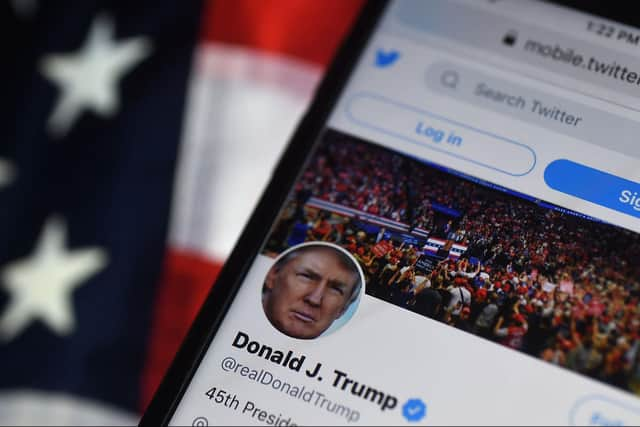What Hambleton council directors can learn from departing Twitter employees - David Behrens
Its accounts will have been depleted by £770,000 when it is wound up – the money having been divvied up between four of its directors who don’t want to transfer to the new single-tier council that will serve the whole county. That means they will each walk away with the thick end of £200,000 of ratepayers’ money in their back pockets, despite not having been made redundant.
To put that into perspective, the total amount is 70 times more than the latest council handouts to help villages in Hambleton improve their communities.
Advertisement
Hide AdAdvertisement
Hide AdThere was hell to pay when the figures were debated at Northallerton Civic Centre on Tuesday. The council was under no obligation to pay anything at all, it was pointed out, since the directors in question were all being offered new jobs. Nevertheless, their “golden goodbye” payments were approved by a convincing majority of councillors.


Why are these anonymous directors so reluctant to take on different and perhaps more challenging roles with the new, larger authority? Are they afraid that left to sink or swim in a larger pond they will quickly gravitate to the bottom? After all, Hambleton – despite its spread of 500 square miles between the Dales and North York Moors – is one of the least populated council districts in England. It’s a cosy little number.
But it’s not a lifelong stipend. Councils are not immune to the commercial pressures the rest of us face and when change comes, as it eventually must, their bosses must face the ignominy of having to jump ship with everyone else.
The outrage of using public money to massage the egos of a few public officials is thrown into sharp contrast by what has been happening at the other end of the employment spectrum this week.
Advertisement
Hide AdAdvertisement
Hide AdTwitter, the embodiment of 21st century commercialism, has been shedding staff faster than a mangy cat sheds fur following its takeover by the billionaire Elon Musk. Many employees have been fired but others, including the head of its French operation, have walked out because they don’t like the new direction the company has taken.
For these ex-employees it is a matter of principle: they would rather take their chances in a competitive jobs market than work for a firm in which they no longer believe. What’s more, they have shown their hands publicly, not sought to hide their identities. It is a stance that does them more credit than simply skulking off with their wallets bulging.
Watching Twitter implode has been one of the more entertaining spectacles in an otherwise depressing cycle of news. Most extraordinary has been the way the US popular media has treated its possible demise as if it were the end of debate itself. Endless hours of TV have been squandered by pundits pondering how they can possibly communicate without it.
The great American satirist Tom Lehrer had something to say about this nearly 60 years ago when he opined that “if a person can’t communicate, the very least he can do is to shut up”. He was referring to the then current fad for kitchen sink dramas in which young men failed to talk to their parents, but perhaps he was also foreseeing the future of an inaccurately-named universe of social media.
Advertisement
Hide AdAdvertisement
Hide AdTwitter was conceived as a tool to facilitate debate but it has only polarised it. Articulate discourse has disintegrated into an unseemly shouting match in which those who yell the loudest shut down opinions they don’t like. Elon Musk’s motivation for buying it was apparently to redress the political balance, but his only move in that direction has been to welcome back the most polarising figure of all – his fellow megalomaniac, Donald Trump. He now presides over a hideous hall of mirrors in which reason is distorted beyond recognition. Worse, with so many staff taking flight, there’s no-one left to even attempt to filter the truth from the lies.
And quite besides the political dimension, Twitter is to communication what sewage farms are to agriculture: a poisoned stream of vitriol that flows right through modern society. Given his obvious intelligence, it’s strange Musk can’t see that. But the most brilliant are sometimes also the most blinkered.
The virtual debate over social media is a world away from the real one that took place in Northallerton on Tuesday but the outcome may be the same. Hambleton Council will be history by Easter – and the way things are going, so will Twitter.